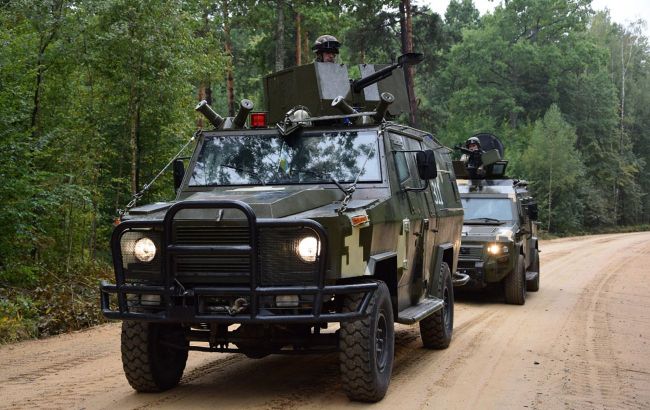Russians hit border cams between Ukraine and NATO to disrupt military aid
 Photo: Russian hackers attacked Ukraine and NATO countries to disrupt aid (facebook com zahidnuy kordon)
Photo: Russian hackers attacked Ukraine and NATO countries to disrupt aid (facebook com zahidnuy kordon)
Russian hackers attacked NATO logistics in an attempt to disrupt aid to Ukraine. The hackers also tried to hack cameras on Ukraine's border, according to a report by the US Cybersecurity and Infrastructure Security Agency (CISA).
According to the report, since the end of February 2022, a unit of the Russian GRU - the 85th Special Services Center (military unit 26165), also known as Fancy Bear, APT28, Forest Blizzard, or BlueDelta, etc. - has intensified cyber operations against the infrastructure of NATO countries.
The main targets of the hackers were logistics companies, IT companies, and transportation infrastructure that ensure the coordination, transportation, and delivery of foreign aid to Ukraine.
The hackers attacked companies in NATO member states, Ukraine, and international organizations. The companies that were targeted were those related to:
- defense industry;
- transportation and transportation hubs (ports, airports, etc.)
- maritime industry
- air traffic control;
- IT services.
The report also notes that thousands of IP cameras were seized at border checkpoints and railroad junctions, giving Russian intelligence the ability to monitor humanitarian aid convoys in real time.
According to The Guardian, British and allied intelligence agencies reported that Russia tried to hack the cameras at the border to spy on and disrupt the flow of Western aid.
The UK's National Cyber Security Center (NCSC) called on private companies involved in the aid effort to take immediate steps to protect themselves.
"In addition to targeting logistics entities, unit 26165 actors likely used access to private cameras at key locations, such as near border crossings, military installations, and rail stations, to track the movement of materials into Ukraine. The actors also used legitimate municipal services, such as traffic cams," the intelligence reports.
According to the intelligence, about 10,000 cameras were installed near "military installations, and rail stations, to track the movement of materials into Ukraine," of which 80% were in Ukraine and 10% in Romania.
The cyberattacks affected at least 13 NATO countries, including Czechia, Germany, Poland, Romania, the United States, and Ukraine.
Russian attack on Ukrainian registries
Last December, Russian hackers attacked the state registers of the Ministry of Justice of Ukraine. It was one of the largest cyberattacks during Russia's full-scale invasion of Ukraine.
Due to the Russian attack, some services and online services were unavailable in Ukraine. These included booking in Ukraine's Diia, registering as a sole proprietor, obtaining deferrals from mobilization in Reserve+, etc.
Experts have gradually restored electronic services and registries.

